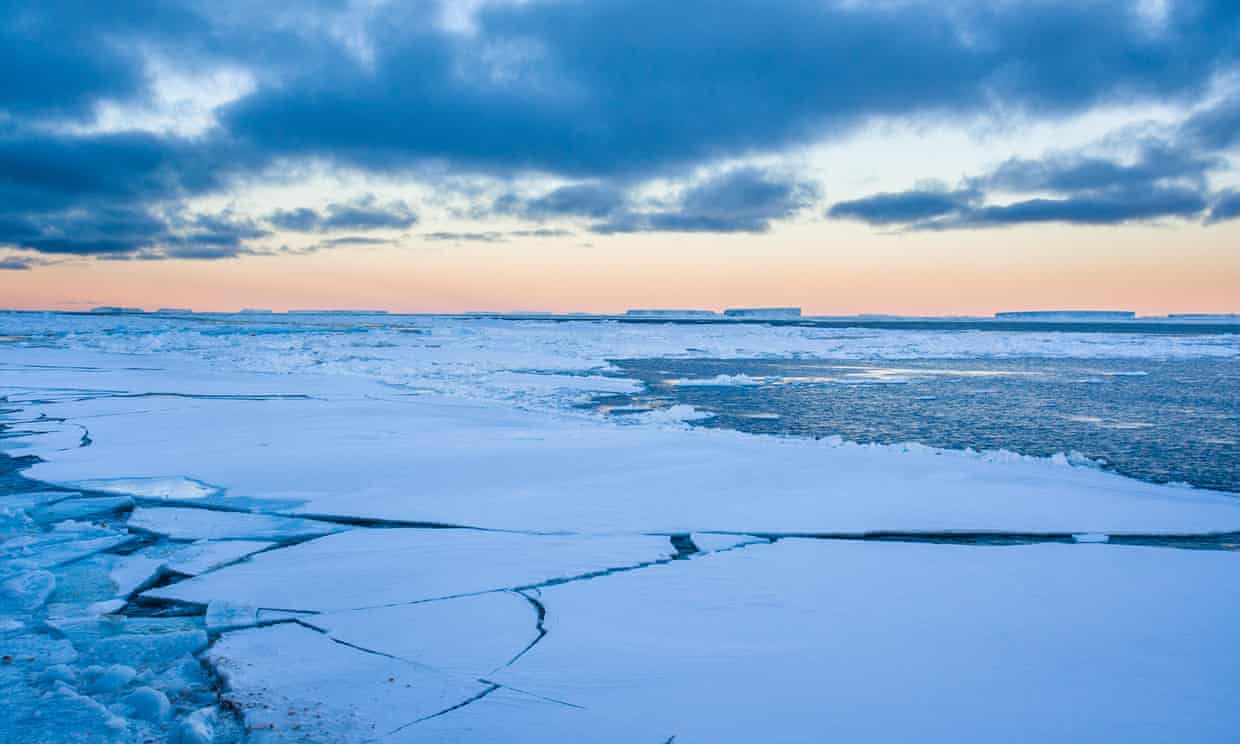Report: Antarctica Sea-Ice Hits New Record Low
According to research published by the National Snow and Ice Data Center on Thursday, Antarctica's sea ice fell to 1.91M square kilometers (737K square miles) on Feb. 13 — the lowest extent since records began in the late 1970s....

Facts
- According to research published by the National Snow and Ice Data Center on Thursday, Antarctica's sea ice fell to 1.91M square kilometers (737K square miles) on Feb. 13 — the lowest extent since records began in the late 1970s.1
- Three of the last record-breaking years for low sea ice have occurred in the past seven years. The previous all-time low of 1.92M square kilometers (741K square miles) was set on Feb. 25, 2022.1
- According to the center, unusually high air temperatures to the west and east of the Antarctic Peninsula, winds, and warmer air and water are causing sea ice surrounding Antarctica to melt rapidly.2
- Scientists warn the Antarctica sea ice may shrink even further before this year's summer melting season ends, adding 'much of the Antarctic coast' is without ice, 'exposing the ice shelves that fringe the ice sheet to wave action and warmer conditions.'3
- Moreover, the scientists estimate the sharp decline in Antarctica's sea ice in the last six years could indicate that sea ice loss on the continent is an indicator of a significant downward trend.4
- Though Antarctica's sea ice extent is highly variable, the Antarctic ice sheet is losing mass six times faster than in the 1990s, contributing to global sea level rise.5
Sources: 1Nsidc, 2BBC News, 3Sciencealert, 4Phys and 5Climate.
Narratives
- Narrative A, as provided by Unep. Antarctica’s sea-ice loss indicates a climate that is getting warmer and warmer and is not in balance. It shows that one of the most remote facets of the climate system is finally being affected by the overall planetary warming trend. While the melt itself is a natural process, global warming is not a process that will stop itself. It's high time the world takes the climate crisis more seriously.
- Narrative B, as provided by University of hawaiʻi system news. Ice melt is complicated. It’s too early to link global warming and sea ice decline in Antarctica. Whether discussing sea ice in Antarctica or otherwise, there are often conflicting datasets, and not all ice melt results in sea level rise. The Earth's climate is constantly changing, and that includes Antarctica. A nuanced understanding of Earth's 'cryosphere' is superior to simple climate alarmism.






